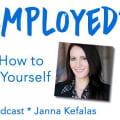While skimming the blogosphere, I stumbled upon a career expert’s recent post where he advised that sticking to a one-page resume is an “old-school” rule that NO jobseeker should follow regardless of experience level. As a recruiter, I could not disagree more! And I think it’s important for all professionals to understand why and how a one-page resume serves them in the job market.
Last year, I wrote the book Confessions of a Teacher Recruiter: How to Create an Extraordinary Resume and Hook Your Dream Job to help teachers- and all entry to mid-level professionals- who are seeking pragmatic advice on how to create great resumes that will make recruiters and hiring managers like you. I’ve been recruiting for almost 15 years and have personally reviewed well over 20,000 resumes, mostly from teachers, through my work in the New York City Public Schools, including as the Director of Teacher Recruitment (5,000 hires a year), and as a private consultant.
You might be wondering what you can learn from teachers if you’re in a profession like marketing, engineering or human resources. My answer? A lot! The average age of a new teacher in the United States is approximately 29 years old because teaching is often a second career. These new teachers often have to figure out how to summarize a number of diverse experiences in their resumes to show a competitive advantage and anyone can learn from how the successful ones have dealt with this challenge.
Here are three points to consider before you send in a multi-page resume to your next job opening.
As a recruiter, I am not going to read your second page even if you have one. In Confessions of a Teacher Recruiter, I describe my general rule that if you have more than 10 years of experience, including significant leadership and/or academic publications, you can consider a two page resume (I have one myself that I use in specific cases). While that is true, I never actually read the second page of a resume very closely at all and I don’t expect anyone who requests my resume does either.
Join The Break Community
For any position I post, I get hundreds of applications and experience has taught me how to make up my mind on whether the person is going to advance to a phone screen based on the first half of the first page a resume. The truth is that I don’t have time to delve into detail on most resumes. Even if I do skim a second page, there is nothing on there that would ever change my mind- your conference attendance is not a game changer in my decision making process. So highlight your awesomeness at the beginning of your resume if you want to capture a recruiter’s attention.
If you want help with your resume, check out the best resume writing services to get a leg up on the competition.
2. Forced choices will make you write better. This is true of anything you write, but especially a resume. If you aim to make your resume as concise as possible and eliminate all unneeded words, add numbers, and remove anything duplicated in another section, you will make a stronger document that will tell your story very directly and to the point. This is one of the reasons that I rely on the beginning of the resume in my decision making process. If you have great writing skills, odds our interview will be good, too.
3. LinkedIn and the internet can help tell a more interesting story. A resume is really just a marketing document that gives someone just what they need to want to bring you in for an interview…. or click on a link and read more information about you. In my book, I confess that I look up candidates online that I am on the fence about. In some cases, I use a tool called Rapportive, a tool for my email that shows me a contact’s social media profiles, but if there is a link in a resume, I just go there.
You can use your LinkedIn profile or personal website to tell a narrative story about what you can do in a creative way and include the information that did not make your one-page resume but you still think is relevant. Again, being direct always helps- start with the most interesting stuff and then bring in supporting details.
Stick to a concise one-page resume that highlights your best self- and makes the use of your hiring manager’s time- and you’ll reap more benefits than creating a multi-page list of everything you’ve ever done.
About Tracy Brisson
Tracy Brisson is the author of Confessions of a Teacher Recruiter: How to Create an Extraordinary Resume and Hook Your Dream Job, an Amazon.com bestselling resume advice book. She is also the Founder and CEO of The Opportunities Project, a national talent development and recruiting agency. If you’d like more of her resume advice, please download her free resume building toolkit 5 Steps for Constructing Amazing Resume Bullets.













